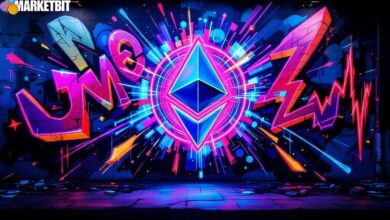Buterin Compares Visa’s Early Structure to DAOs

- Vitalik Buterin links Visa’s early model to DAOs.
- He warns of centralization risks in such systems.
- No direct market impact observed from the commentary.
Ethereum co-founder Vitalik Buterin recently compared Visa’s early structure to modern DAOs, warning about potential centralization risks in systems designed for collective governance.
Buterin’s comments underline crucial lessons for blockchain projects aiming for decentralized governance, emphasizing the potential pitfalls of centralization over time.
Introduction
Vitalik Buterin, co-founder of Ethereum, has compared Visa’s original operating structure to modern DAOs. He emphasized the lessons to be drawn from observing Visa’s transformation over time, illustrating potential risks of centralized drift in such organizations.
Visa’s original intentions embodied concepts similar to modern decentralized autonomous organizations (DAOs), yet many now view them as exploitative or oppressive. He believes this holds valuable lessons worth pondering.” — Vitalik Buterin
Evolution of Visa
Buterin underscored the evolution of Visa from what some perceived as a decentralized model to an entity seen by many as exploitative. His observations serve as a cautionary note for blockchain projects prioritizing decentralized governance and community involvement.
Financial and Market Commentary
The remarks have not triggered immediate financial or market shifts. They contribute to ongoing dialogues on blockchain governance without specific changes to Ethereum or related assets like ETH.
Broader Implications
Political, social, and business implications revolve around safeguarding decentralized intents within organizations. Buterin’s analysis draws attention to historical precedents of governance drift, like the DAO hack in 2016, which impacted trust in decentralized frameworks.
Conclusion and Future Outcomes
Insights on regulatory and technological outcomes suggest vigilance against governance centralization could stabilize trust and asset value over time. Past trends indicate that failure to maintain decentralized ideals can unsettle community confidence and influence token valuations.





